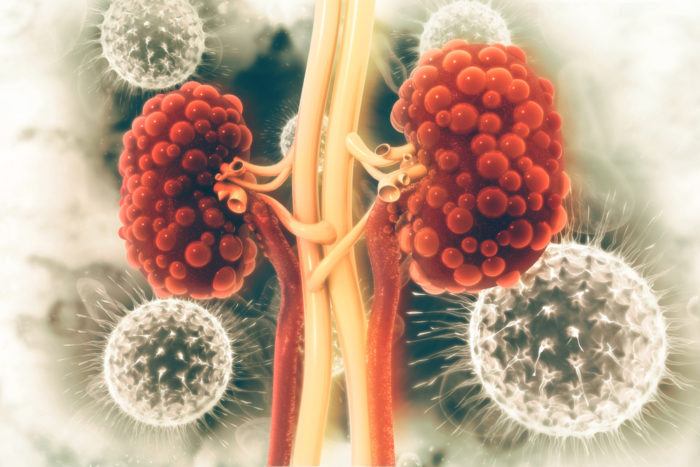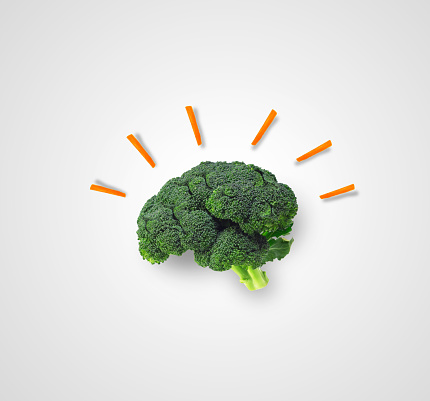
New multi-gene risk score for kidney disease could save millions of lives
March 28th, 2023Chronic kidney disease is a global killer, one of the fastest-growing noncontagious diseases and a leading cause of death. Most people don’t realise they have Chronic Kidney Disease (CKD), and when they do, sometimes, it’s too late. However, a new multi-gene risk score for kidney disease could save millions of lives.
Your kidneys
Your kidneys are each the size of a fist. They are vital organs deep in the abdomen and beneath the rib cage. They contain around a million filters called nephrons, and when damaged, they stop working then the healthy nephrons have to take on extra work. Sometimes, the demand can become too much, and the kidneys start to fail.
Healthy kidneys are like fine-tuned machines, multi-tasking and keeping you alive
The kidneys work around the clock, every 30 minutes filtering the blood. They remove toxins, excess water and waste products from the body. The kidneys play a vital role in regulating blood pressure and activating vitamin D to keep bones and muscles in shape. They produce red blood cells and control sodium, potassium and blood acidity.
Kidney health awareness
Since 2006 events have taken place around the world to highlight kidney health. This year World Kidney Day was on the 9th of March. It was an opportunity to build awareness and educate people about risk factors, prevention and protection.
Did you know?
- 360 people begin dialysis treatment for CKD every 24 hours
- About 3.5 million people in the UK have CKD
- On average, a person in the UK can wait around 2 years before they can have a kidney transplant
- Most cases of CKD go undiagnosed; as a result, it is estimated that 37m of adults in the US have kidney disease, but not a definite figure.
- People with severely reduced kidney function but not on dialysis are not aware they have CKD.
- CKD is diagnosed through urine and blood tests
- In most cases, the disease doesn’t go away
The new multi-gene risk score for kidney disease
A research team led by scientists at Columbia University in New York City has devised a multi-gene risk score to identify people at a high risk of developing CKD. A genome-based risk score for everybody, no matter their race or ethnicity.
Researchers identified gene variants statistically associated with impaired kidney function based on a 2019 meta-analysis of genetic data from 1 million people.
They tested the performance of the risk score against 15 cohorts from diverse backgrounds. These included 6 groups of participants of African ancestry, 4 cohorts of East and South Asian ancestry and 2 Latinx cohorts.
The author’s scores performed consistently across all populations assessed, and individuals who were ranked in the top 2% of the risk based on this score were 3 times as likely to have been diagnosed with CKD. Future iterations of this score could guide preventive care to avert the onset of CKD in people at high risk and potentially guide the screening and selection of organs for kidney donation.
Read the study here.
What are the symptoms of CKD?
Symptoms can include:
- Oedema or swollen feet, hands and ankles
- Hypertension or high blood pressure
- More urination, especially at night
- Decrease in mental alertness
- Persistent itchy skin
- Fatigue or tiredness
- Decreased urination
- Blood in the urine
- Loss of appetite
- Dark urine
- Anaemia
You are more likely to suffer from CKD if you are diabetic, have high blood pressure or heart disease or have a family history of CKD.
How can you reduce the risk of developing CKD?
- Protect your kidneys by preventing or managing any health conditions
- Eat a nutrition-rich diet including fruit and vegetables – fresh or frozen
- Read food labels and packaging so you know the nutritional content
- Cut back on salt and added sugars or saturated fats
- Use spices in your food as a salt supplement
- Include whole grains in your diet
- Have low-fat or dairy-free foods
- Keep a record of what you eat
- Bake instead of frying in fat
- Don’t do recreational drugs
- Limit alcohol consumption
- Monitor your body weight
- Do physical activities
- Eat healthy meats
- Give up smoking
- Stay hydrated
To optimize your kidneys, try Natures Marvels™ Kidney Peptide Bioregulator.
This is a specialised peptide for the kidneys, working to normalise kidney function and also help with urolithiasis disease, chronic pyelonephritis, renal failure and gout nephropathy.
References
- https://www.nature.com/articles/s41591-022-01869-1
- https://www.globenewswire.com/news-release/2023/03/20/2630397/0/en/American-Kidney-Fund-Brings-Kidney-Health-Education-to-All-During-Fourth-Annual-Virtual-Kidney-Action-Week-on-March-20-24.html
- https://www.niddk.nih.gov/health-information/kidney-disease/chronic-kidney-disease-ckd/prevention
- https://www.nature.com/articles/d41586-023-00655-4
- https://www.medicalnewstoday.com/articles/172179#symptoms








